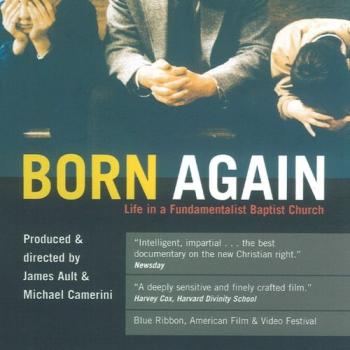What Is a Postconservative Evangelical?
This is how I describe myself and many others who think in a way similar to my way—about being “evangelical.” For a fuller explanation see my books Reformed and Always Reforming: The Postconservative Approach to Evangelical Theology (BakerAcademic) and How to Be Evangelical Without Being Conservative (Zondervan).
Not many theologians I know want this label slapped on them. However, N. T. Wright accepted it and named me in his book Justification. I thought I coined the label back in the 1990s in an article for Christian Century entitled “Postconservative Evangelicals Greet the Postmodern Age.” Then I found out Fuller Seminary Professor Jack Rogers actually wanted his book Confessions of a Consevative Evangelical titled Confessions of a Postconservative Evangelical. That would have fit the book better. Also, Clark Pinnock used the word “postconservative” in his book Tracking the Maze, but his use and mine are not identical.
I coined the term (or thought I did) to describe a new breed of evangelicals who do not privilege “the received evangelical tradition” over fresh and faithful biblical scholarship (such as is being done by N. T. Wright and others). The “foil” for postconservative evangelical theology is evangelical theology deeply influenced by Charles Hodge, B. B. Warfield, and the whole Old School Princeton Theology following them (e.g., David Wells, Roger Nicole, Millard Erickson, et al.)
Postconservative evangelical theology is evangelical theology that does not consider the constructive task of theology finished. Conservative evangelical theology is evangelical theology that considers the constructive task of theology finished. These theologians are primarily interested in the critical task of theology—discovering heresy and exposing it. They are also interested, of course, in translating older versions of “the received evangelical tradition” (e.g., Hodge) into contemporary idiom.
Postconservative evangelical theology does not elevate “biblical inerrancy” to the status of an evangelical dogma or (to borrow Carl Henry’s term) the “super badge of evangelicalism.” Postconservative evangelical theology does not privilege epistemological foundationalism and finds some ideas of postmodern epistemology helpful.
Postconservative evangelicals like: Lesslie Newbigin, N. T. Wright, Richard Bauckham, James McClendon and Nancey Murphy, Stanley Grenz, Clark Pinnock, et al. We mostly stay apart from the Evangelical Theological Society and attend events of the Missio Alliance and Ekklesia Network.
But the main difference between postconservative and conservative evangelicals in theology is attitudes towards the constructive task of theology. For postconservative evangelicals every doctrine is subject to revision in light of fresh and faithful biblical interpretation (not cultural accommodation). The Bible absorbs the world and is our authoritative narrative (but not a “not-yet-systematized systematic theology). Doctrine is important but secondary to Scripture.
The manifesto of postconservative evangelicalism is the late Stanley Grenz’s book Revisioning Evangelical Theology (IVP).
*Note: I speak only for myself. This is not a discussion board. Respond only to me. Be sure your response contributes to conversation and is not hostile. Your response must not be longer than 250 words. Do not attempt to misuse my blog to preach your own message. Join the conversation; do not misrepresent anything I have said (or that anyone else has said). The purpose of this blog is information and enlightenment, not argument. Do not include hyperlinks in your responses.*

















